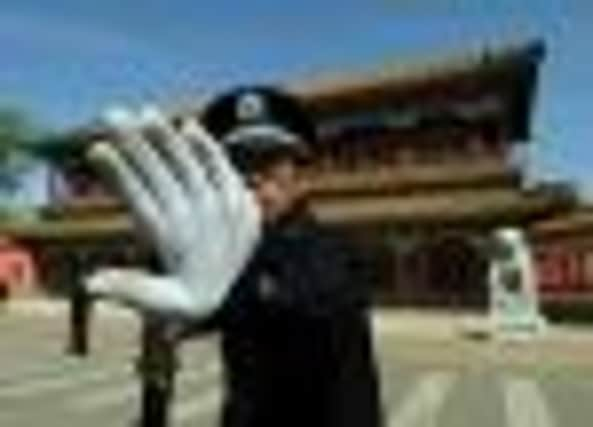China arrests protesters and blocks internet sites as row over Bo grows


In a sign of how intensely sensitive the issue is for the Communist Party, censors continued to block online searches for the name of Bo Xilai, the former Chongqing party boss cast out of the Central Committee on Tuesday.
Even the most inane references were blocked on the popular Twitter-like Weibo microblogging site – including “Chongqing”, the south-western metropolis Mr Bo ran and where he built up his credentials as a leader who wanted fairer distribution of wealth and cracked down on crime.
Advertisement
Hide AdAdvertisement
Hide AdBut clever word-play allowed many to skirt the restrictions, reimposed after being very briefly relaxed in mid-March, when Mr Bo was sacked as Chongqing party chief.
By yesterday morning, there were more than 230,000 postings on “big news”, and “Wude”, a reference to the Chinese name of Mr Heywood, had racked up some 100,000 postings.
The official Xinhua news agency said late on Tuesday that Mr Bo’s lawyer wife, Gu Kailai, and their son had been on good terms with Mr Heywood but they had fallen out over “economic interests”.
“Today’s biggest news – people who don’t lack money can murder someone because of money. Who’s going to believe that?” wrote K_ankan.
“Can it be as simple as economic disputes?” added Dulixuezhe. “Behind the case there must be a mountain of secrets.”
Another likened modern-day elite Chinese politics to the power games of the former emperors in their palaces who were regarded as divine and ruled with the mandate of heaven.
“A huge twist at the palace theatre. It really is true that man’s schemes are inferior to those made by heaven,” wrote Two Fatties CC.
Others expressed sympathy for Mr Heywood, whose name had not previously appeared much in Chinese media.
Advertisement
Hide AdAdvertisement
Hide Ad“Mr Heywood, you came to China from such a long way away and you have sacrificed yourself so that the Chinese people may have rule of law,” wrote Star Runner.
However, Chinese state media mostly stuck to repeating the Xinhua pronouncements on the case.
One Shanghai-based reporter for a state media outlet, who asked not to be identified, said they had been told to leave the case well alone.
“This is a very sensitive matter. We have been told not to dig deeply into this matter. For example, a circular told us we cannot investigate claims originating from the internet about this,” the reporter said.
Meanwhile, police were yesterday reported to have brought order to a district of Chongqing, where tens of thousands of angry workers confronted the authorities.
A Chongqing official, who spoke on condition of anonymity, said there was no connection with events surrounding the fallen Communist Party boss, but the incident reflects the challenges local governments faced as three decades of rapid economic expansion had left uneven growth.
The official said Wansheng district, where the clashes happened, was trying to modernise its economy. But its economic problems became more pronounced after it was merged into Qijiang county earlier this year.
One witness, Liu Wei, said businesses and schools were closed yesterday in Wansheng. Residents were unhappy because some benefits, such as pensions and teacher salaries, were reduced after the merger.